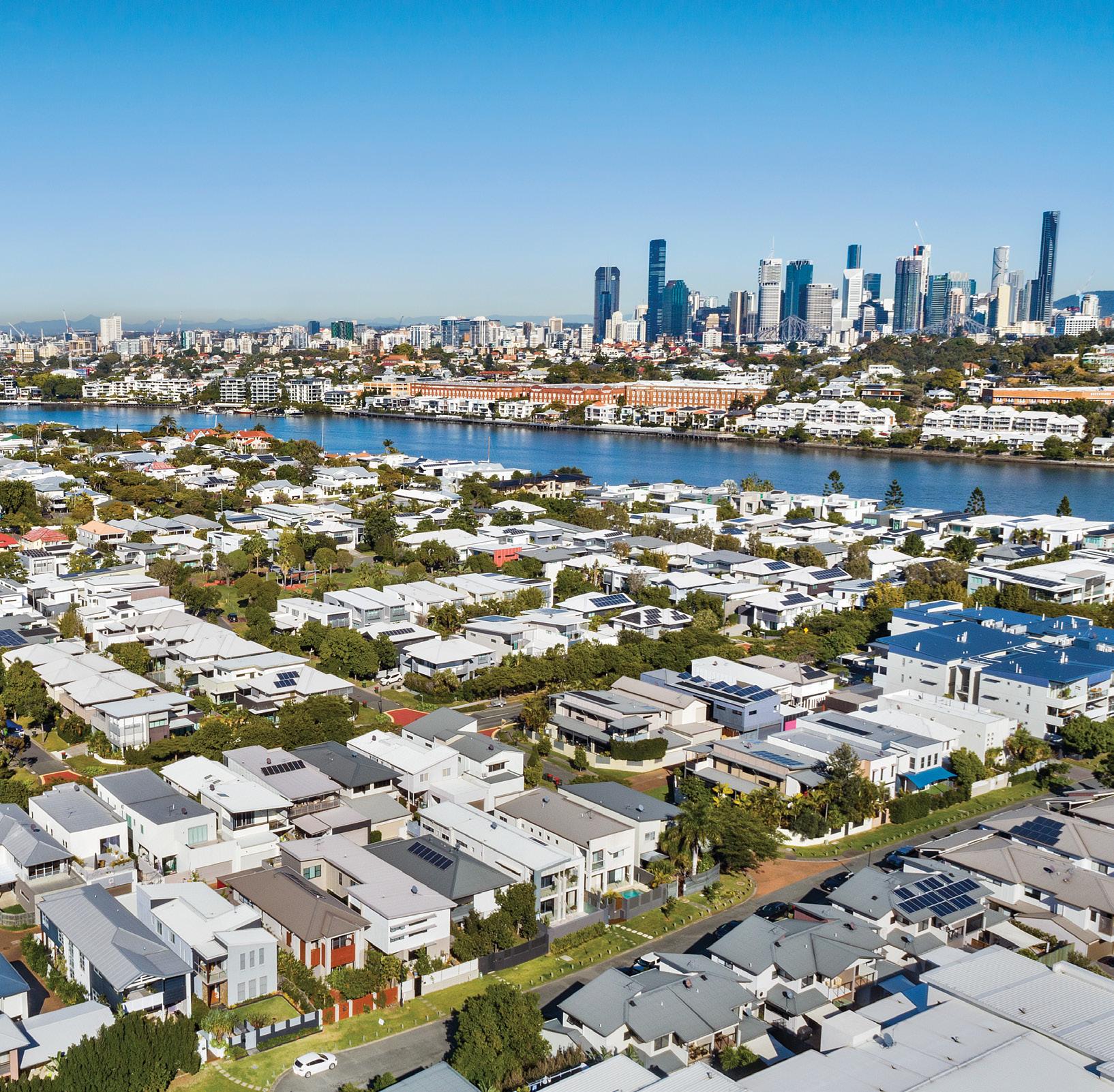
5 minute read
BUYING PROPERTY
Owning Half A Property Is Better Than Owning 100% of Nothing
BY CHRIS GRAY,
CEO, YOUR EMPIRE
In light of tougher and tougher borrowing conditions for home buyers and investors, many property buyers need to be more creative and entrepreneurial if they want to enter market.
Interest rates have risen 2.75% which means that many mortgage repayments cost twice as much as they did a year ago. Lenders still add assess an individual’s serviceability on a couple of percent higher and often only take 75% of the rental income into account. Most Australians can now only borrow a fraction of what they could a few years ago.
So how can you buy a home or investment property if the bank won’t lend you enough money? Your Empire surveyed a number of their clients and found they typically fall into 3 camps: (1) They have a deposit and can get a mortgage (2) They’ve got a deposit but can’t get a mortgage or (3) They can get a mortgage, but they haven’t got a deposit.
If you can’t currently get a mortgage it could be a while until you either earn a lot more money, interest rates drop or serviceability rules are relaxed.
If you haven’t got a deposit it could be quite a few years until you save one up given that you will probably need $50k - $150k+, based on 5-10% deposit and 5% stamp duty/ legals for a $500k - $1m property.
Some may think that it’s not too bad as the property market is unlikely to do much over the next few years and so they’re not missing out on much. Seasoned property owners that have invested over the decades know that it’s much easier to buy a property now that ticks 10/10 of the boxes than it is when the market is rising and you’re competing against many other buyers with deeper pockets than you.
My personal golden rule of buying over the last 25 years is to buy when (1) when you have the cash to buy and (2) when you have the cash to pay any shortfall.
So how can you invest in the market when you don’t have a deposit or can’t get a mortgage? The answer is collaborating or getting into a joint venture with another person that has what you’re missing and needs what you have.
From our survey, we found that some keen buyers earn $100-300k as a household income and could easily service a $1m mortgage, however every time they almost save a deposit, they go and blow it on an overseas holiday.
We’ve also found some keen savers that don’t earn that much money but have squirrelled away a $50k - $150k deposit. There’s also those that have generous parents that have given them an early inheritance but given they’re still studying, don’t qualify for a mortgage.
By working together, these two types of buyer could buy a property together, whether it’s a home or an investment. The high-income earner could get the mortgage, pay any negative gearing and claim any tax deduction at a high rate. The deposit holder putting their deposit in and not having the stress of being tied to a mortgage.

The term of the deal could be anything, but I would suggest somewhere around 5, 7 or 10 years so the property has time to grow. Either party could buy the other one out at any time if their circumstances change and they do save a deposit or get a higher paying job. Both parties could receive say 6-7% return on any money they put into the deal which is much more than they could get compared to cash in the bank and they would get an extra 1-2% if they had pulled the deposit out of existing equity. The interest would be capitalised and taken out of the capital gain on sale, with the remaining gain split 50/50.
So, can this work? Yes, it can as I did one myself back in 2008 in the last GFC. I did it with a complete stranger who lived the other side of the world and we both made money. The exact details are described in my book ‘Go For Your Life. How to turn your weekdays into weekends through property investing’.
I’m generally not a fan of doing joint ventures as you’re always reliant on a third party and their circumstances could change over time. However, I’d much rather do a joint venture and own 50% of a property than 100% of nothing as then you’ve got no chance of buying a home or making money from an investment. There will be a few additional costs to set up a joint venture, but they are insignificant when the property has grown, and you look back many years later. If you are going to do a joint venture, you need to ensure you have some guidance from those experienced in these matters and you need to plan for the worst-case scenario. Having cash buffers and a good legal agreement in place is essential, as is getting advice from suitably qualified independent professional advisers.




